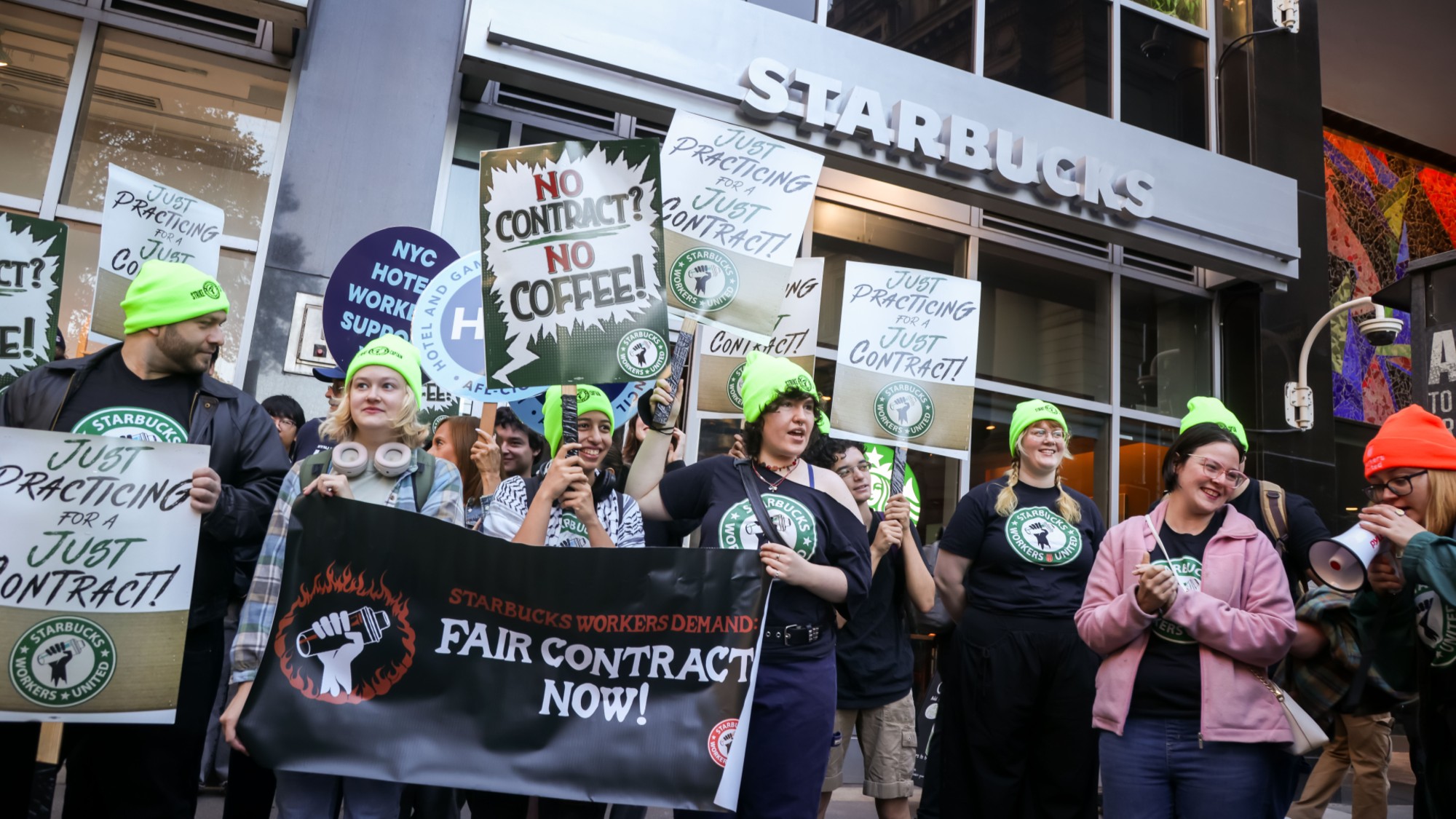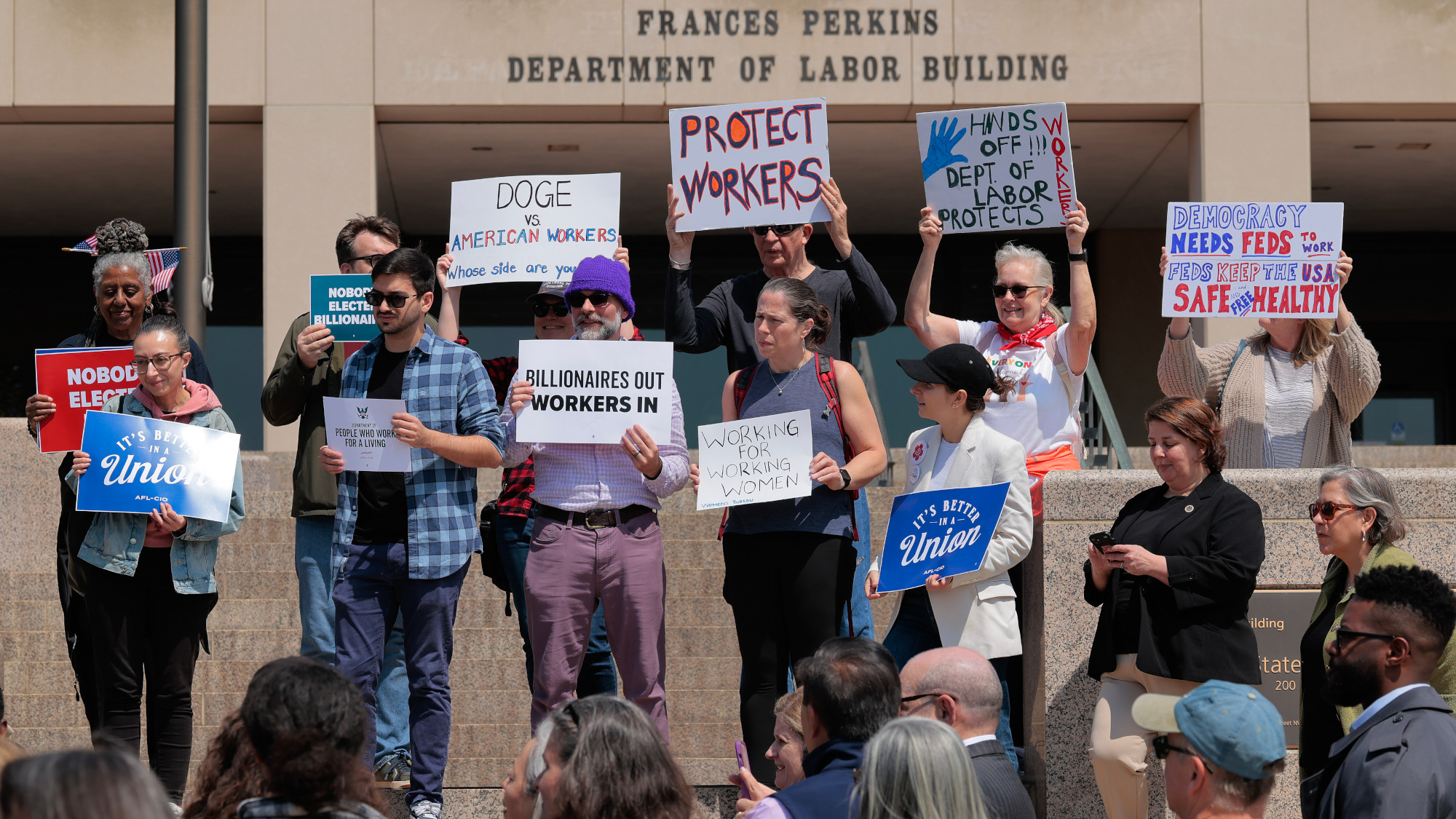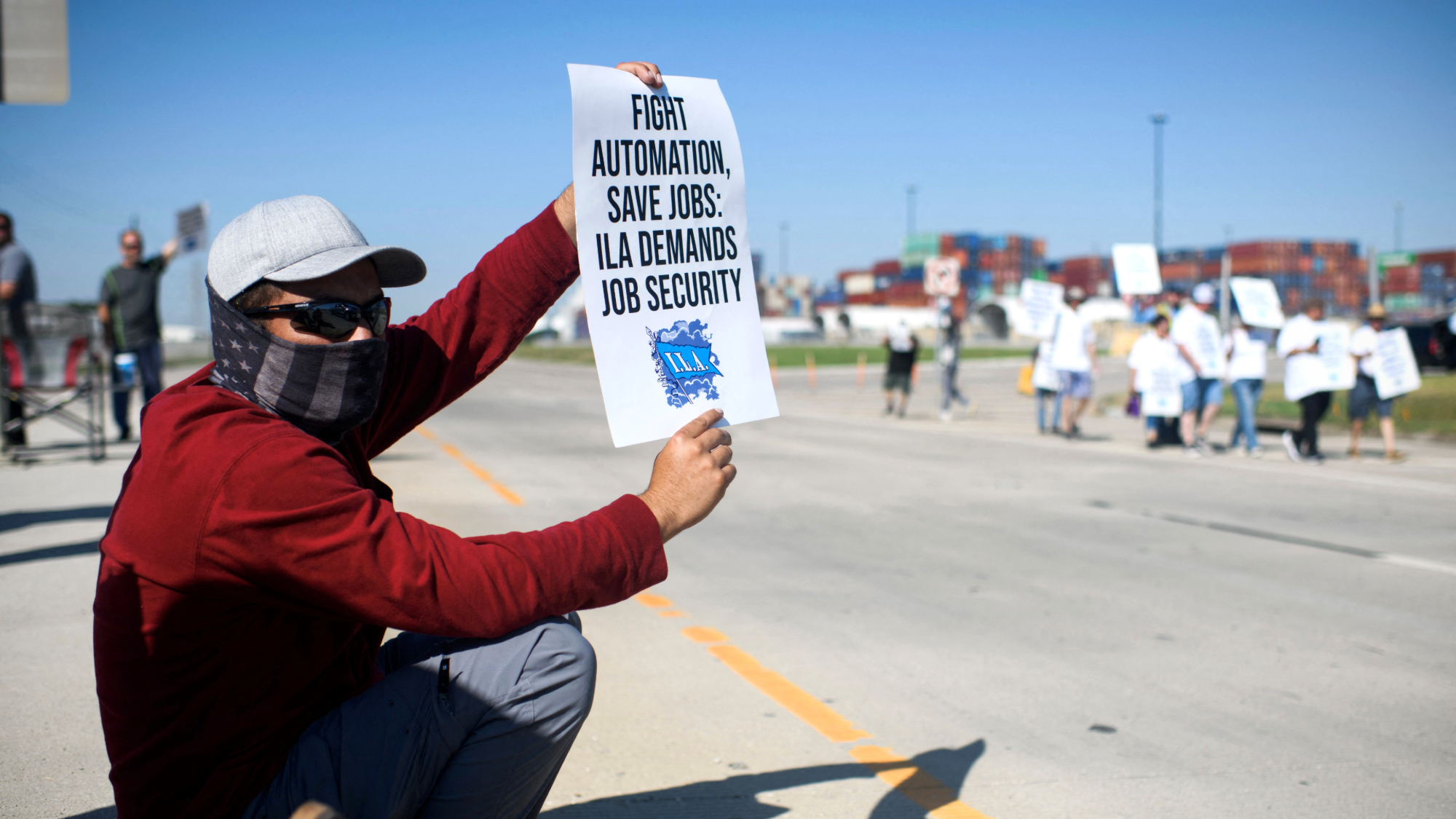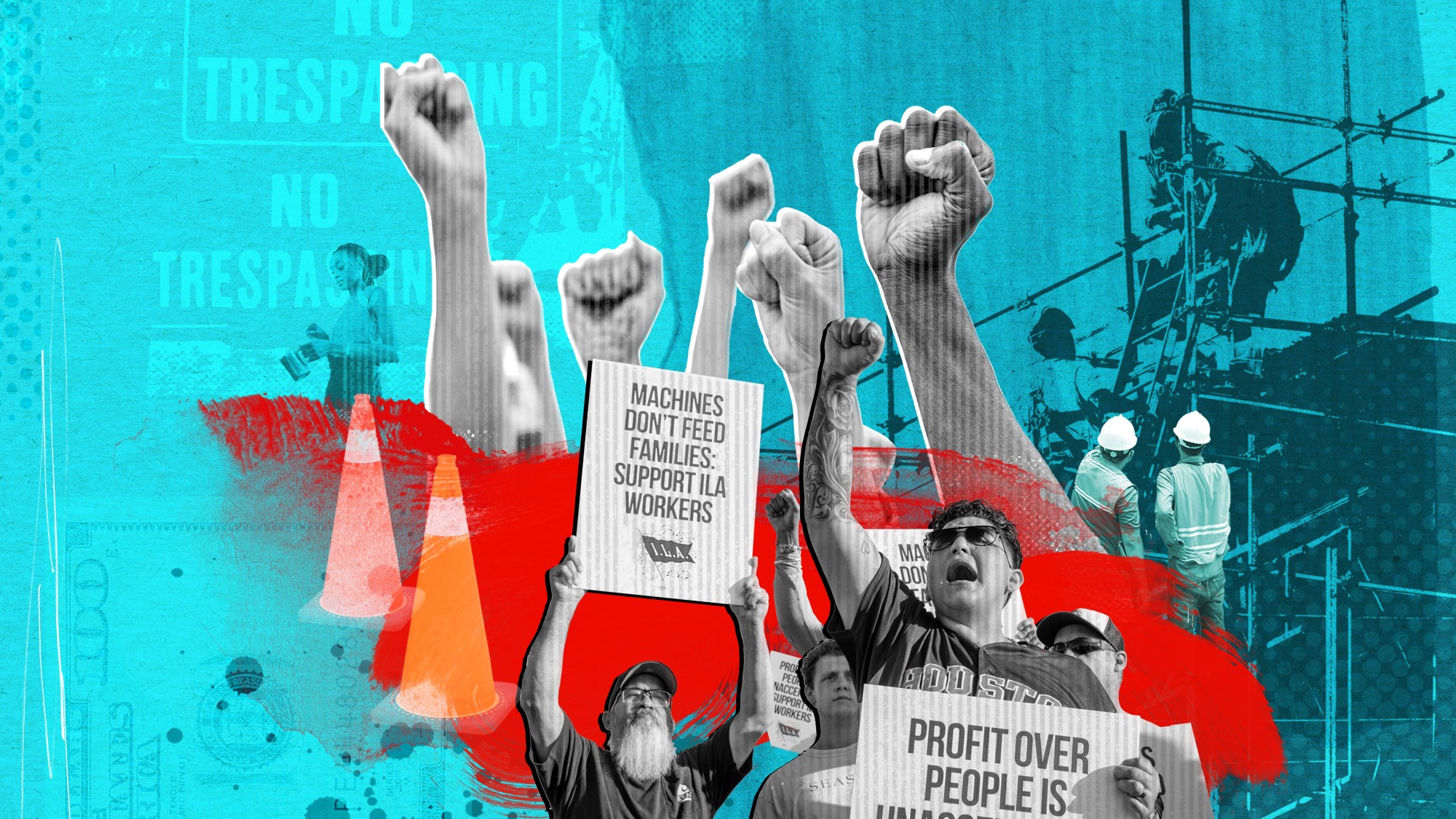The Great Resignation is ending. Now what?
What's next for the labor market?


A free daily email with the biggest news stories of the day – and the best features from TheWeek.com
You are now subscribed
Your newsletter sign-up was successful
After three years and plenty of staffing shortages, it seems the so-called Great Resignation is on its way out. The phenomenon first arose as a result of the Covid-19 pandemic, when fatigued workers with cash to burn and time to think gave their employers an ultimatum: Show me you value me, or I'll find somewhere else that does. Suddenly, hobbies and side hustles became small businesses. Hospitality and service workers left their jobs for better-paying gigs or left the industry altogether. And the nation's employers were effectively run not by the people at the top but by the hard workers at the bottom. Now, however, staffers seem to be once again sticking around. So where's the labor market heading?
Why is the Great Resignation ending?
The so-called quits rate, or the rate at which workers voluntarily quit their jobs, has "fallen sharply in recent months" and is only "modestly above where it was" before the pandemic first began," including in turnover-heavy industries such as hospitality and retail, The New York Times' Ben Casselman reported at the beginning of July. Not to mention employers also seem to have diverted their focus from resignations, "a topic I've not discussed or heard about in at least six months," Nicholas Bloom, a Stanford University economics professor, told CNN. (Though not everyone agrees. Bloomberg's Jonathan Levin feels a bit more wary about declaring the phenomenon's definitive end.)
What has changed?
Employers are finding it easier to hire and keep workers, perhaps because wages shot up and benefits have improved since the start of the pandemic. Meanwhile, the economy is continuing to add jobs, even as the labor market cools amid the Federal Reserve's aggressive campaign to lower inflation. Still, however, persistent and highly publicized layoffs have taken a toll on worker confidence in recent months, which could be influencing laborers to stay in their current roles. "The fact that quit rates are down indicates that there's low confidence in the job market," Jessica Kriegel, a workplace culture expert, told CNN.
The Week
Escape your echo chamber. Get the facts behind the news, plus analysis from multiple perspectives.

Sign up for The Week's Free Newsletters
From our morning news briefing to a weekly Good News Newsletter, get the best of The Week delivered directly to your inbox.
From our morning news briefing to a weekly Good News Newsletter, get the best of The Week delivered directly to your inbox.
It's almost like a game of job market musical chairs, Nela Richardson, the chief economist at payroll processing firm ADP, told Casselman. Originally, workers felt comfortable moving between jobs as the economy recovered from the aftershocks of Covid-19. Now, however, with experts still warning of an impending recession, workers might be scared that a poorly timed career move will put them on the outs. "Everyone knows the music is about to stop," Richardson said. "That is going to lead people to stay put a bit longer."
What happens next?
The Great Resignation of 2022 could be "easing into the Big Stay of 2023," Richardson wrote in a May release for ADP. The former was a phenomenon fueled by "abundant job opportunities, labor shortages and big pay increases for workers who quit one job to take another." Now, "all three of these dynamics are abating."
But perhaps a better term for the current state of affairs would be the Great Rebalancing, Julia Pollak, the chief economist at ZipRecruiter, told Insider, considering that "to the extent that there is a big stay, it is not taking place across the economy." Added Aaron Terrazas, the chief economist at Glassdoor, "If you read about the Great Resignation on your computer while working from home in your pajamas, it's been over for a couple of months now." But if you "heard about it while on the front lines as an in-person service worker … it's still very real."
Regardless, the question now also becomes: Will workers retain the gains they made in the labor market now that the Great Resignation is over? Arindrajit Dube, a professor at the University of Massachusetts, is optimistic. "There are good reasons to think that at least a chunk of the changes that we've seen in the low-wage labor market will prove lasting," he told Casselman.
A free daily email with the biggest news stories of the day – and the best features from TheWeek.com
In Dube's estimation, though low-pay workers have seen a slowing down of wage gains, they have otherwise "not lost ground over the past two years" and have managed to "keep up with inflation and higher earners," Casselman summarized. This suggests turnover is decreasing in part because "employers have had to raise pay and improve conditions enough that their workers aren't desperate to leave." That said, that balance of power will likely once again shift if companies are forced to let staffers go "en masse."
What other changes might persist?
In just two years, workers at the bottom of the economic food chain were able to narrow the gap between themselves and those at the top, largely thanks to workers' "increased ability — and willingness — to change jobs," Casselman said. Perhaps that change in behavior is the moral workers will take with them as the Great Resignation ends: I will no longer work where I am not valued.
And contrary to the job-market musical-chairs argument (and to some degree, the impending end of the Great Resignation in general), employees might also just be learning to live with uncertainty these days. A June 2023 analysis from Bankrate found that 88% of workers who say they are worried about job security actually plan to take "at least one career action in the next 12 months, which includes quitting a job, asking for a raise, relocating for a job, negotiating for more flexibility, and searching for a new position."
Brigid Kennedy worked at The Week from 2021 to 2023 as a staff writer, junior editor and then story editor, with an interest in U.S. politics, the economy and the music industry.
-
 The EU’s war on fast fashion
The EU’s war on fast fashionIn the Spotlight Bloc launches investigation into Shein over sale of weapons and ‘childlike’ sex dolls, alongside efforts to tax e-commerce giants and combat textile waste
-
 How to Get to Heaven from Belfast: a ‘highly entertaining ride’
How to Get to Heaven from Belfast: a ‘highly entertaining ride’The Week Recommends Mystery-comedy from the creator of Derry Girls should be ‘your new binge-watch’
-
 The 8 best TV shows of the 1960s
The 8 best TV shows of the 1960sThe standout shows of this decade take viewers from outer space to the Wild West
-
 Ski town strikers fight rising cost of living
Ski town strikers fight rising cost of livingThe Explainer Telluride is the latest ski resort experiencing a patroller strike
-
 What will the US economy look like in 2026?
What will the US economy look like in 2026?Today’s Big Question Wall Street is bullish, but uncertain
-
 Starbucks workers are planning their ‘biggest strike’ ever
Starbucks workers are planning their ‘biggest strike’ everThe Explainer The union said 92% of its members voted to strike
-
 Labor: Federal unions struggle to survive Trump
Labor: Federal unions struggle to survive TrumpFeature Trump moves to strip union rights from federal workers
-
 US port strike averted with tentative labor deal
US port strike averted with tentative labor dealSpeed Read The strike could have shut down major ports from Texas to Maine
-
 Boeing machinists reject deal, continue strike
Boeing machinists reject deal, continue strikeSpeed Read The rejection came the same day Boeing reported a $6.2 billion quarterly loss
-
 The pros and cons of globalization
The pros and cons of globalizationPros and Cons Globalization can promote economic prosperity but also be exploitative
-
 The pros and cons of labor unions
The pros and cons of labor unionsPros and Cons Companies throughout the country continue to push for unionization
